It was Sukhoi, went to the hands of Irkut and now belongs to Yakovlev: new variant of the Russian Superjet jet with a greater amount of national items flew for the first time
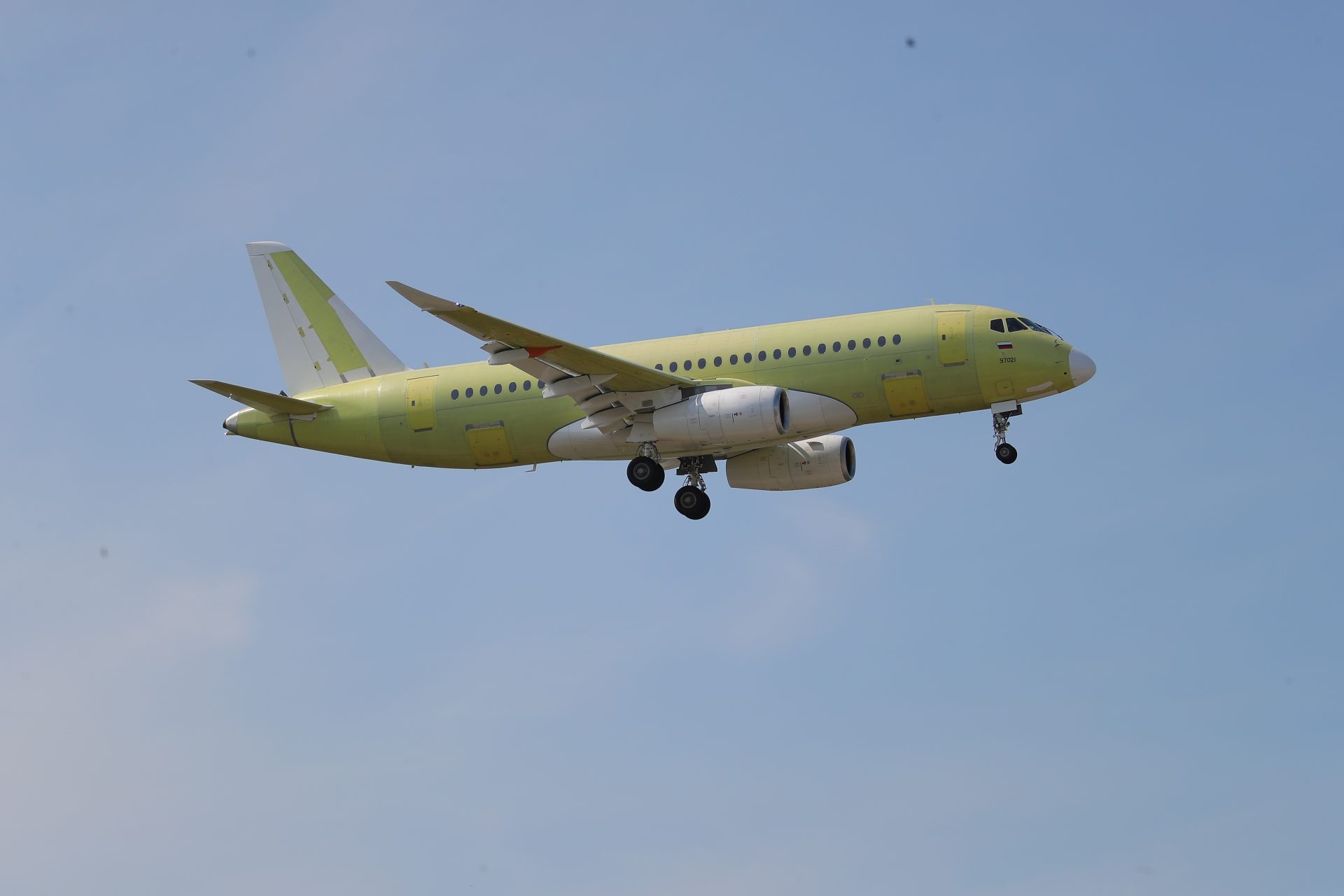
Formerly known as SSJ-New from Irkut, the now renamed SJ-100 under the command of Yakovlev completed its maiden flight today (29). The aircraft took off from Komsomolsk-on-Amur airport, in the far east of Russia, and confirmed the operation of the new domestic systems incorporated into the commercial jet that was originally designed by Sukhoi, said the Russian group United Aircraft Corporation (UAC) – a state-owned conglomerate. controlled by Rostec.
According to the UAC group, the SJ-100 prototype performed a 54-minute flight and reached an altitude of 3,000 meters and a speed of 343 km/h. The company says that the flight served to verify the stability and control of the plane in the air, the automatic cabin pressurization system and the procedures for approaching the aerodrome and landing.
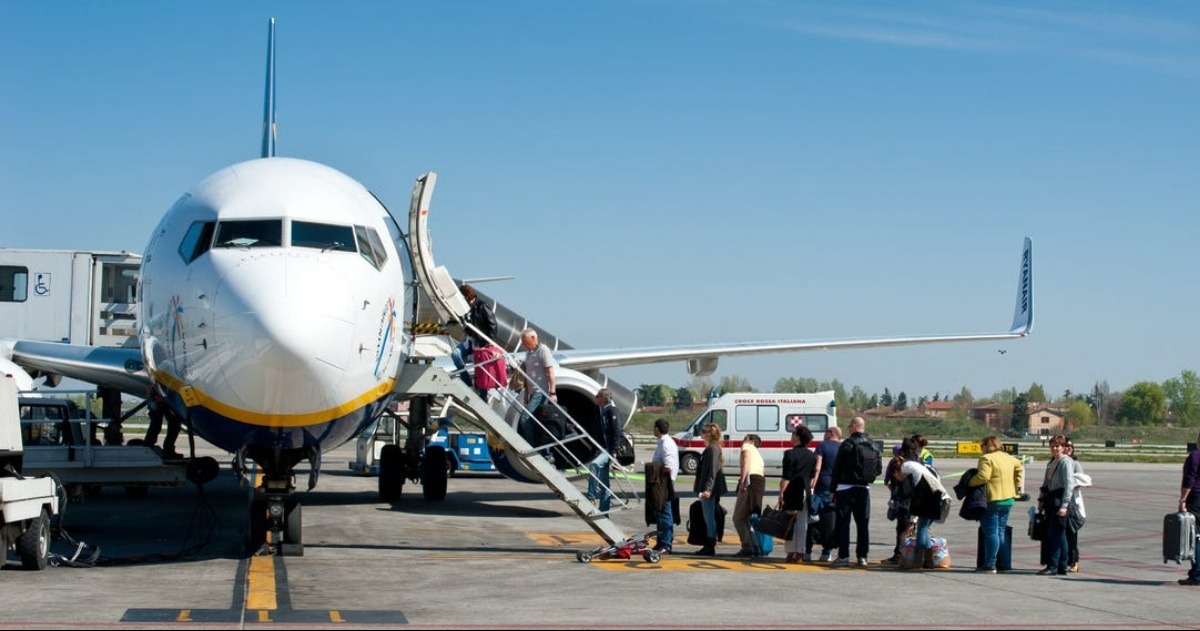
The SJ-100 is Russia’s attempt to create a new passenger jet with greater domestic content, unlike the first version of the aircraft that depended on imported items. UAC says about 40 systems have been replaced on the plane with locally produced equivalents.
Since the beginning of the war in Ukraine, Moscow has been subjected to a series of sanctions imposed by Western nations that have directly affected the country’s aviation industry. To advance in this sector, Russia has chosen to nationalize a number of systems to continue with UAC’s commercial aircraft projects, including the MC-21 and SJ-100.
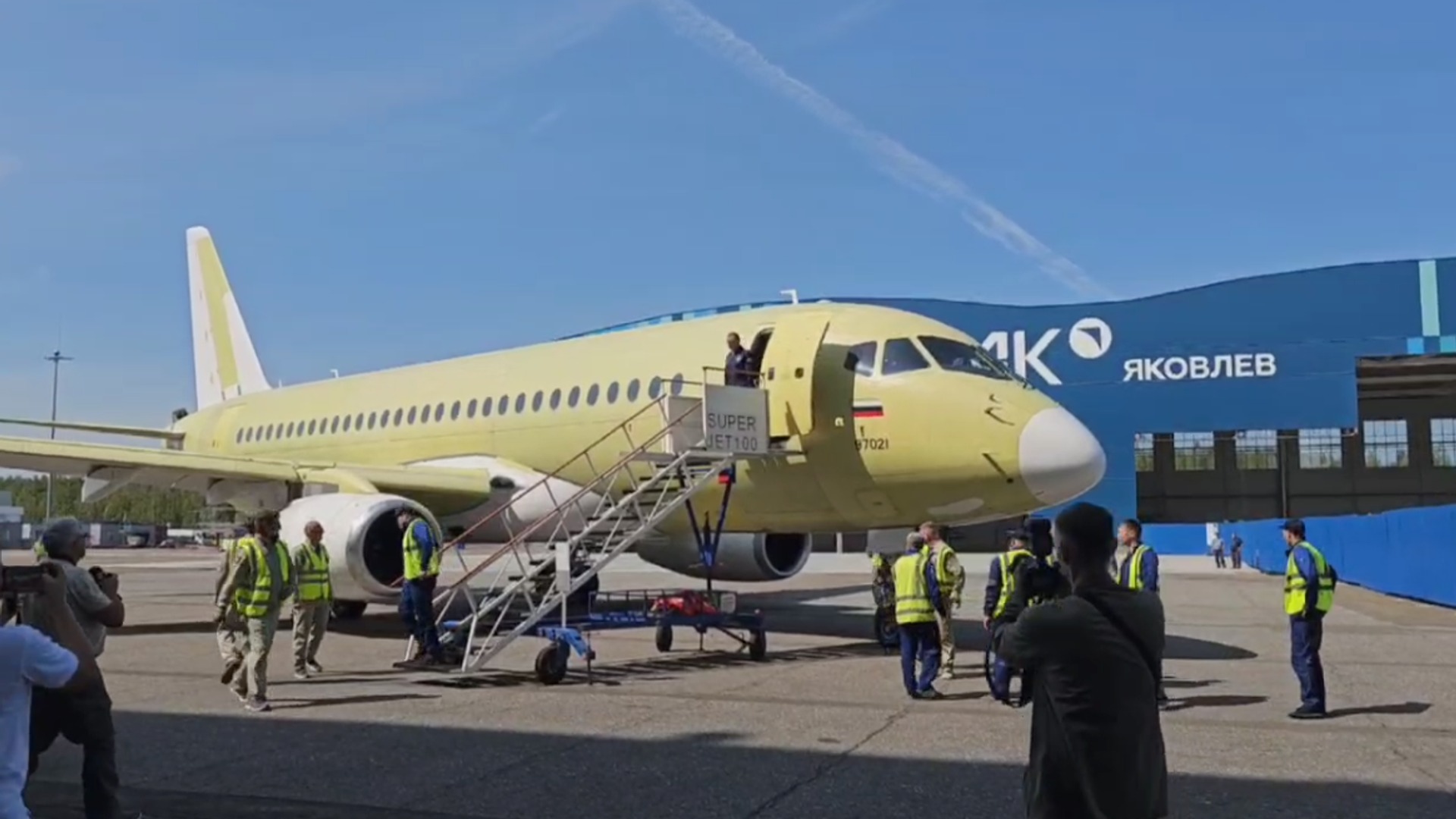
“The first flight of the Superjet, created under the system and component import substitution program, is the success of many thousands of teams from companies in the aeronautics and radioelectronics industries that are part of the control circuit of the State Corporation Rostec. Russian developers and manufacturers managed to implement and put their own design solutions and technologies on aircraft, including avionics, chassis, auxiliary power unit, integrated control system, as well as power supply systems, air conditioning, fire protection and many others,” said Deputy Prime Minister of the Russian Federation and Minister of Industry and Trade, Denis Manturov.
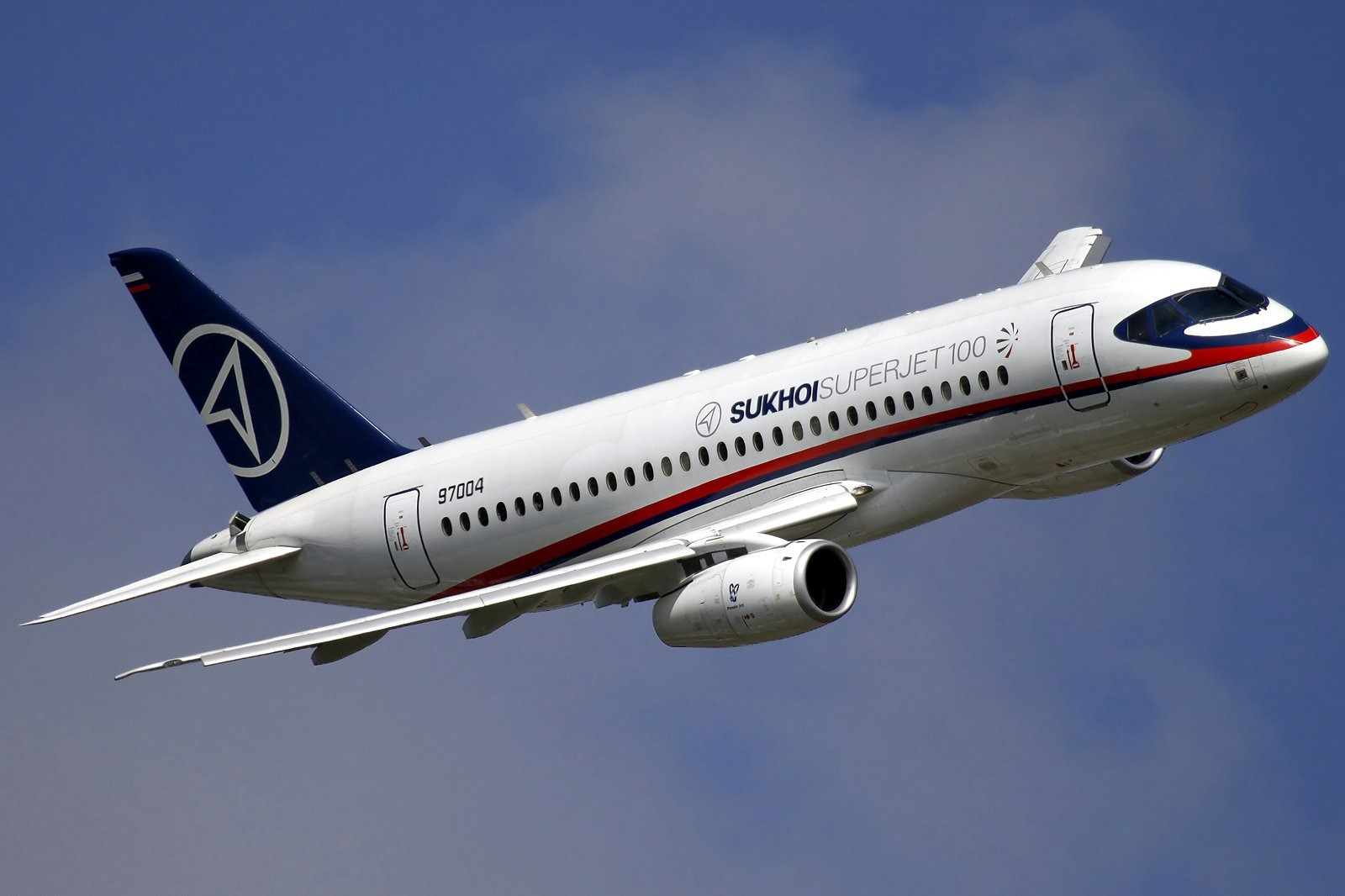
Despite the progress made on the SJ-100’s maiden flight, the plane is still not fully “Russified”. To accelerate the development of the project, the test program was started with an aircraft equipped with Franco-Russian SaM146 engines, used in the first version of the Superjet. The definitive version of the aircraft will be equipped with the Russian PD-8 turbofans, which are currently undergoing evaluations in the air laboratory mounted on the platform of an Il-76 freighter. The UAC says that domestically manufactured thrusters will be installed on the second prototype of the jet and that it will fly “soon”.
“This is the best demonstration of our country’s technological independence. We have proved, first of all, to ourselves that we can develop and produce modern civil aircraft on our own, without using imported technologies. The next ambitious task is to certify the aircraft with an all-Russian look and start serial deliveries to airlines,” said Yury Slyusar, Director General of UAC.
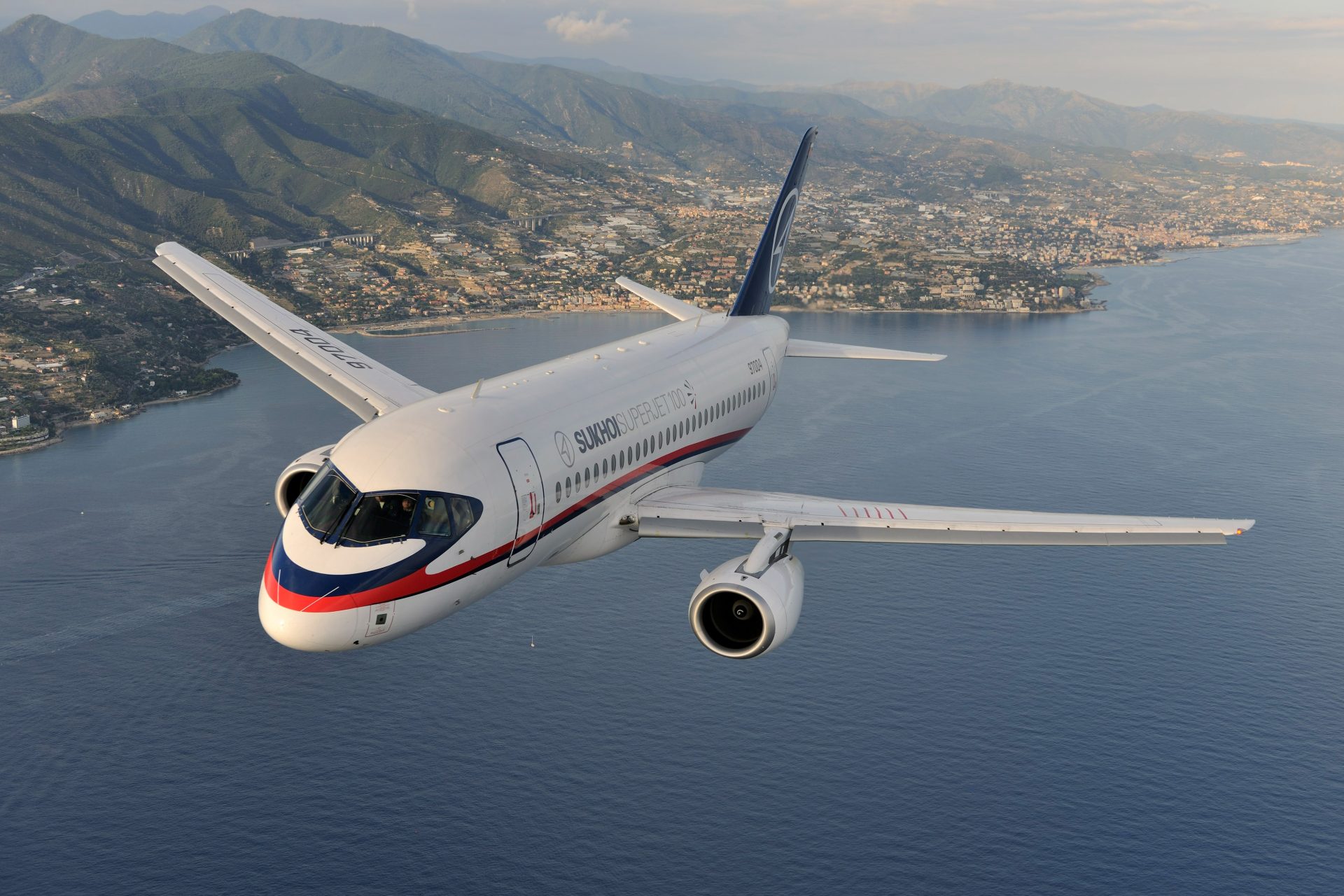
The replacement program for imported components on the Superjet was started in 2019. In view of the sanctions imposed on Russia since last year, the deputy director of UAC and general director of Yakovlev, Andrey Boginsky, considered the decision of the new version of the Superjet “right and clairvoyant”.
“This aircraft has become the personification of the advanced developments of the national aeronautical industry, taking into account the experience in the development, certification and operation of more than 200 Superjet aircraft in recent years. From the beginning of the preliminary design to the first flight, 4 years have passed. The same amount of time, for example, was spent on creating the A320neo, and even more on the Boeing 737 Max,” added Boginsky.